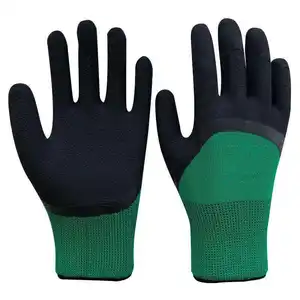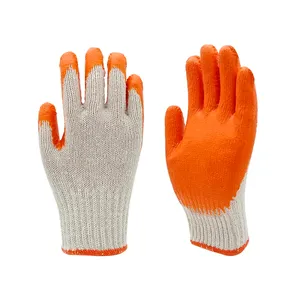Popular in your industry



















































Related Searches:


























































































Top categories
About industrial gloves specification
Understanding Industrial Gloves Specifications
Industrial gloves are essential protective gear in various sectors, designed to safeguard hands against a multitude of workplace hazards. The specifications of industrial gloves are tailored to meet the diverse needs of different industries, from construction to chemical handling. These gloves are categorized based on their material composition, protective features, and intended application.
Materials and Design
The selection of materials for industrial safety gloves is critical to their performance. Common materials include synthetic rubbers like nitrile or latex, which provide chemical resistance, while leather and cotton blends offer durability and comfort for lighter tasks. Advanced gloves incorporate materials such as Kevlar or stainless-steel mesh for enhanced cut and puncture resistance. The design of these gloves often features reinforced palms and fingers, dexterity-focused construction, and ergonomic fits to facilitate ease of use.
Types and Applications
There are various types of industrial work gloves, each suited to specific tasks. Chemical-resistant gloves are indispensable in laboratories, while electrical gloves are essential for electricians. Cut-resistant gloves are favored in manufacturing, and thermal gloves are used in welding and foundry work. Understanding the industrial gloves specification is crucial to selecting the right type for the job, ensuring workers' hands are protected against the specific risks they face.
Features and Advantages
Key features of industrial protective gloves include abrasion resistance, grip enhancement, and dexterity. These features contribute to safer and more efficient work environments. The advantages of using gloves that meet the precise industrial gloves specification include reduced injury rates and improved compliance with safety regulations. Additionally, the use of appropriate gloves can lead to better productivity and reduced downtime.
Selection and Fit
Choosing the right industrial gloves involves considering glove size and fit, which are paramount for comfort and functionality. Gloves should fit snugly without restricting movement. A proper fit ensures maximum protection and allows for prolonged wear without discomfort. It is also important to consider the glove's cuff style, which should be compatible with other personal protective equipment to provide seamless protection.
Maintenance and Durability
The durability of industrial hand gloves is influenced by their material and quality of construction. Gloves designed for industrial use are crafted to withstand rigorous conditions and repeated use. Maintenance of these gloves typically involves regular cleaning and inspection for signs of wear and tear. Proper care extends the life of the gloves, ensuring they continue to provide the necessary level of protection.















































































































